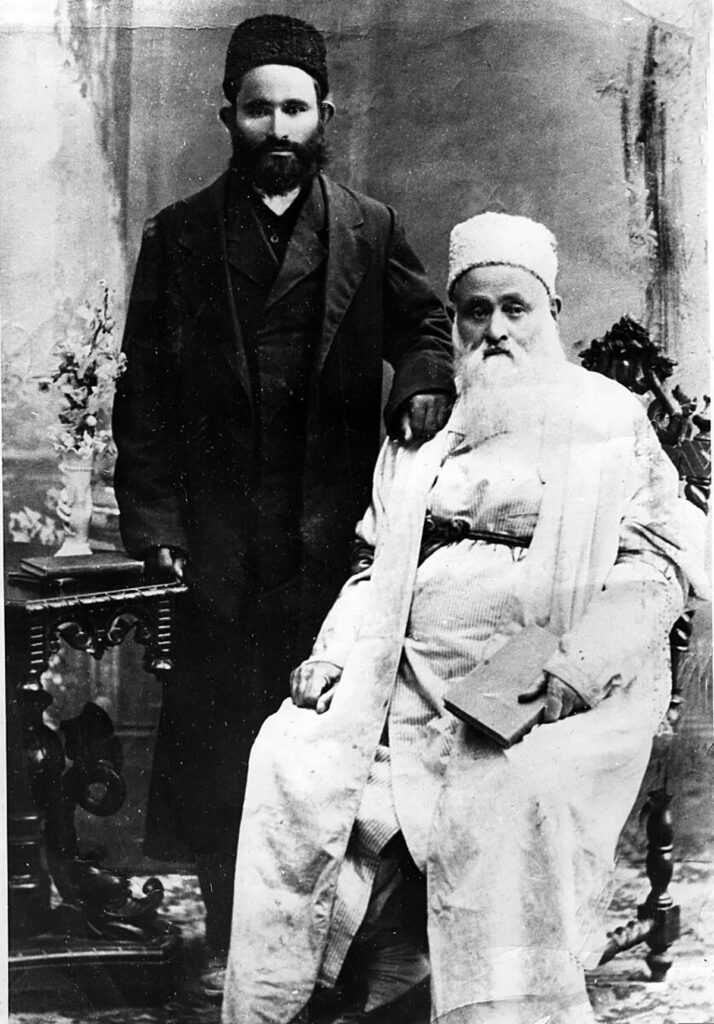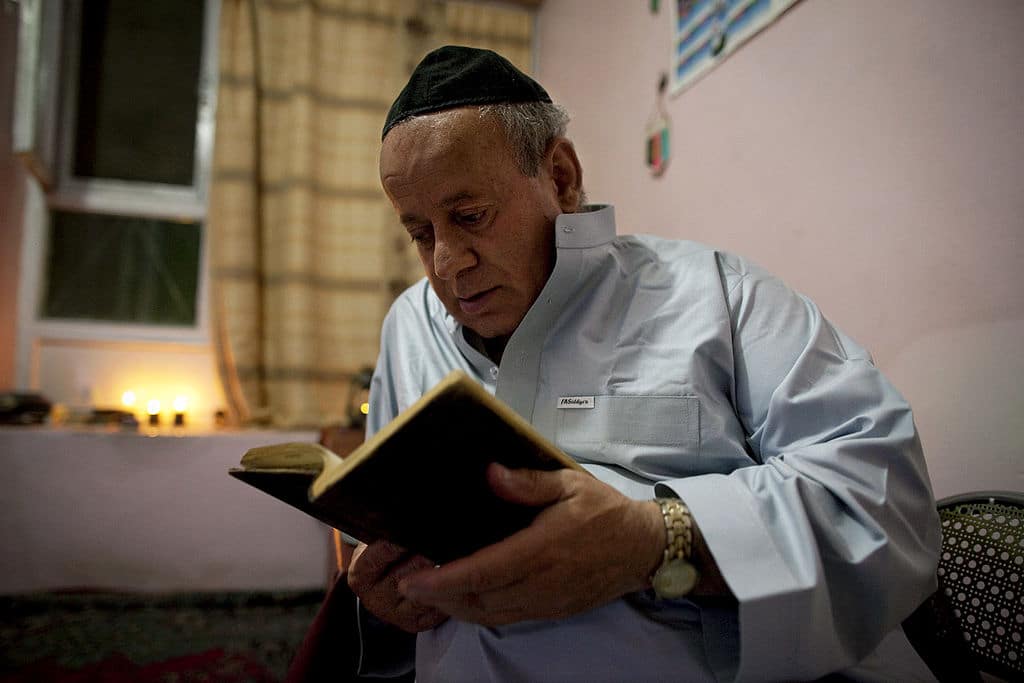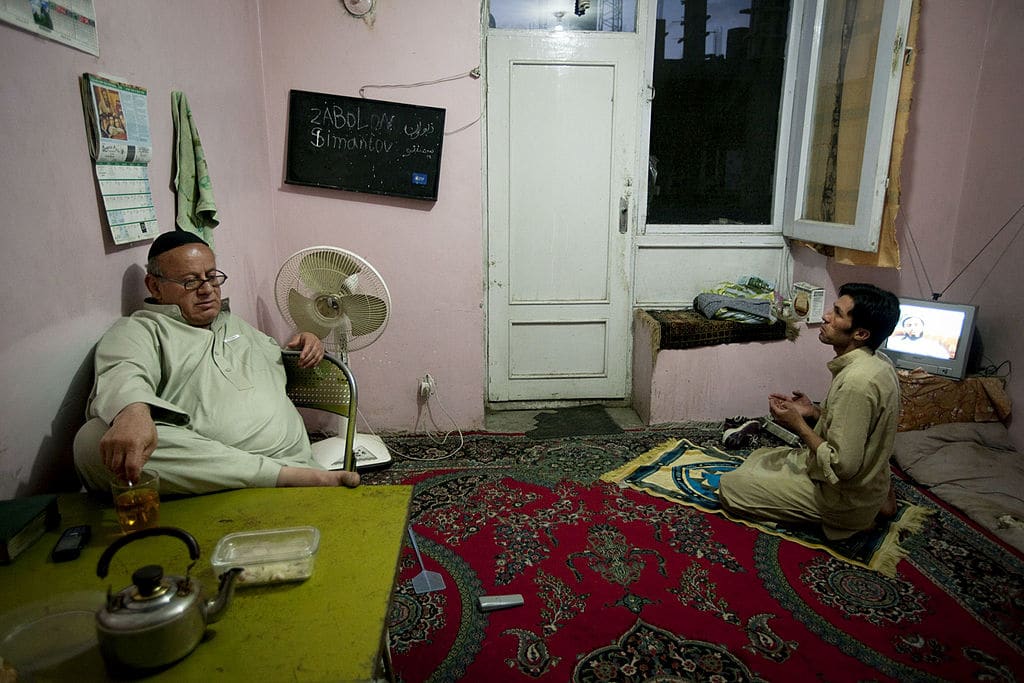Deep in the heart of Afghanistan, amid the high plateaus and jagged mountain peaks, a Jewish community once flourished.
There was a time when Jews fled to Afghanistan for refuge, but by 2005, only one Jew remained. So, who was the last Jew in Afghanistan?
The Jewish history of Afghanistan
The origin of Afghan Jews is shrouded in myth. One Afghan group claims to be descended from the Ten Lost Tribes of Israel. The story goes that they originated from a group called “Bani Israel,” who settled near the city of Herat and allegedly converted to Islam.
Pashtun lore points to customs like lighting candles on Fridays or getting married under a chuppah as proof of this link. A local legend even claims that the term “Afghan” comes from Afghana, said to be the name of King Saul’s grandson, and that the city of “Kabul” is named for “Cain and Abel.”
Other legends claim that Jews arrived in Afghanistan over 2,500 years ago when Cyrus the Great came on to the scene.
Historical documentation and physical evidence tell us that Jews have lived in Afghanistan for the past thousand years. At its height, the Jewish community numbered between 40,000 and 80,000 Jews. The community was strong until Genghis Khan showed up.
The Mongols destroyed Afghanistan’s Jewish community in their march across the world. It took 300 years for the community to recover. By the 1800s, Afghanistan’s Jews had fallen into crushing poverty.
Additionally, when Iranian rulers forced local Jews to convert to Islam, Persian Jews fled to Afghanistan. But it wasn’t quite the safe haven they’d hoped for. Afghanistan’s emir, Abd al-Rahman, harshly restricted Jewish trade and movement.
These restrictions, not to mention the poverty and famine, drove a number of Afghan Jews to the land of Israel.
But like most Jews throughout history, those who remained in Afghanistan were subject to the whims of local rulers.
This meant that sometimes, they were treated almost like everyone else, but other times, they were harshly reminded of their minority status. Along with other religious minorities, they had to pay a special tax, wear specific clothing, and promise not to disturb the peace or bring down “public morale.”

Afghanistan’s Jews also faced pogroms and expulsions, and by 1934, the Afghan government was doing its best to get rid of its Jews. They refused to issue new passports to Jewish travelers, leaving them stuck as stateless refugees, begging to be let back into their own country. They confiscated IDs and stopped Jews from sending letters abroad. The entire Jewish community of northern Afghanistan was expelled.
As if things weren’t bad enough, then came the Nazis. Scholars debate the influence of the Nazis on Afghanistan. On the one hand, there were no concentration camps, but on the other hand, anti-Jewish restrictions made life pretty bad for Afghanistan’s Jews.
The last Jew of Afghanistan
When Israel was established in 1948, most of Afghanistan’s Jews fled. By the 1960s, less than 1,000 Jews remained in Afghanistan, but even they left as things grew worse — except for Zebulon Simentov.

Like the rest of Afghanistan’s Jews, Simentov and his family left Afghanistan, but unlike everyone else, Simentov returned in 1999 — alone.
It takes a certain personality to remain in a country all by yourself when the rest of your community is gone. So it makes sense that Zebulon Simentov seems to be larger than life. News articles describe him as a “feisty Afghan,” a “portly man fond of whiskey” who has some pretty hilarious stories.
For example, his arguments with Afghanistan’s second-to-last Jew caused such a commotion that the Taliban threw them both in jail… and then kicked them out again because they just wouldn’t stop fighting.
The Taliban didn’t make it easy to say. They confiscated the synagogue’s Torah scroll and generally made it pretty hard to practice. Jewish organizations repeatedly offered to fly Simentov out of the country, but he refused, saying that he had “no business” in Israel and was unwilling to “let Jewish history die in Afghanistan.”
Simentov claimed he wanted to stay in the country to reclaim the Torah scroll and maintain Kabul’s last synagogue. However, there may have been a more sinister reason for his refusal to leave.
The truth behind Simentov’s persistence
Simentov owed his estranged wife a Jewish divorce. Until he agreed to grant it, she was stuck because, under Jewish law, only a man can grant a divorce.
There are ways to bring a reluctant husband to divorce court, but it’s a lot harder to do that when he’s all the way in Afghanistan, so Simentov stayed.
His estranged wife remained married to him, despite the fact that she hadn’t seen him in decades.
After the US Army pulled out of Afghanistan in 2021, leaving the country at the mercy of the Taliban, Simentov knew he had no choice. He could either be kidnapped or killed by the Taliban, or he could finally leave the country where he was so deeply rooted.

Simentov finally granted his wife a divorce and left. That was the end of Jewish life in Afghanistan — or so everyone thought.
The secret-remaining Jew of Afghanistan
After Simentov left, the world learned about Tova Moradi — Simentov’s 80-something distant cousin. In many ways, she’s Simentov’s polar opposite. While he’s loud and brash, she’s more quiet. While he’s publicly and proudly Jewish, she kept her Judaism on the DL.
Tova Moradi was one of 10 siblings. At 16, she ran away from home to marry a Muslim man, but she never converted to Islam. She even maintained a number of Jewish traditions and her husband’s whole community even knew she was Jewish!
By the 1980s, the last members of her family had left the country. Still, she kept up contact and she never forgot her identity as a Jew. She even risked her own life to hide a rabbi from the Taliban for a month.
When the Taliban took power, once again, in August of 2021, Moradi and her family knew their lives were in danger. For two months, they planned their escape with the help of IsraAid, Afghan diplomats, the president of Israel, and a number of Jewish businessmen.
In October 2021, just a month or two after Simentov’s escape, Tova and 25 of her family members succeeded in making it out of Afghanistan. She explained, “I loved my country, loved it very much, but had to leave because my children were in danger.”
Remembering Afghanistan’s Jewish community
Lots of Jews have heard about Zebulon Simentov. He’s so outlandish that he’s funny.
But the journalist and novelist Dara Horn points out that “Nostalgic stories about Last Jews mask a much larger and darker reality about societies that were once ethnic and religious mosaics, but are now home to almost no one but [ethnic monoliths].”
She explains, “I’ve seen what happens in such places decades after the last Jews have vanished. Often, thousands of years of history are completely erased.” Meanwhile, in our drive to tell funny stories about people like Simentov, we forget why they might “wind up as ‘Last Jews’ to begin with.”
The reasons for that are complicated. Sometimes, it’s plain old antisemitism, but most times, it’s a combination of political and economic instability, natural disasters, or erasure of minorities who could threaten or complicate national unity.
It’s important to remember two things about the Jews of Afghanistan.
First, they existed, and their community was larger and more vibrant than the one cranky old guy who has come, unwittingly, to represent them.
Second, although they no longer live amid the crags and plateaus of a harsh and beautiful country, their legends and traditions endure. Their community lives on, transplanted somewhere else.
Wherever Jews go, we take our traditions and histories with us. Sure, ours is a history full of tragic expulsions, but it’s also one of resilience which is both tragic and beautiful.
